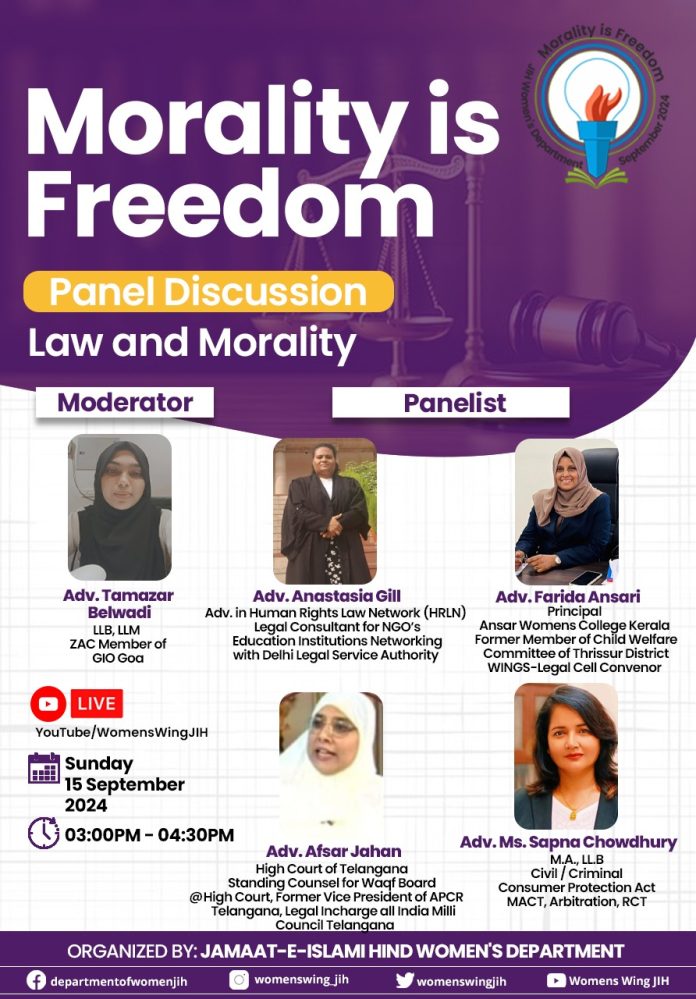New Delhi: The Women’s Department of Jamaat-e-Islami Hind, as part of its month-long ‘Morality is Freedom’ campaign, organized an online panel discussion on Sunday. Mrs. Nazrana Darvesh, the media in-charge of JIH Goa, delivered the inaugural speech. She emphasized the campaign’s goal of aligning morality and freedom to ensure proper adherence to laws. Mrs. Darvesh highlighted that divine revelations, which have guided humanity since time immemorial, offer a moral framework essential for living a disciplined life and effectively following laws.
The panel discussion, which featured advocates from the various States, was moderated by Advocate Tamazar Belwadi, a ZAC member of GIO, Goa. Advocate Anastasia Gill discussed the challenges posed by ‘constitutional immorality’, such as corruption charges against ministers, questioning the integrity of India’s democracy. She underscored the importance of upholding constitutional values like justice, liberty, equality, fraternity, secularism, and individual dignity. She advocated for institutional checks to prevent power abuse. She discussed the role of morality in legal systems, particularly in relation to community ethics and the implementation of laws, especially in sensitive areas like crimes against women.
Advocate Afsar Jahan distinguished between law and morality, noting that while law regulates behaviour within society, morality governs behaviour even when one is alone. He emphasized that laws are rooted in moral values, which are crucial for their formulation and enforcement. She highlighted the moral dilemmas faced by advocates, especially when defending guilty individuals, and the societal attitudes that affect justice outcomes.
She also emphasized that historical discrimination based on caste, religion, and color has led to societal chaos, and commended reformist leaders like Prophet Muhammad ﷺ for promoting equality and democracy through moral values.
Advocate Sapna Chaowdary argued that the intersection of law and morality is critical for individual and societal well-being. She suggested that when justice is administered with moral consideration, it fosters a just society. While discussing capital punishment, she argued that while it could be a deterrent, true justice also requires the culprit to acknowledge their crime and undergo stringent punishment.
Advocate Farida Ansari pointed out that law and morality should complement each other. She emphasized that principles of natural justice, which are based on core values, should be reflected in legal systems. She also addressed the importance of gender sensitization and eradicating loopholes in legal practices. She also stressed the need for laws to evolve to better protect weaker sections of society and to ensure that justice is effectively implemented beyond mere documentation.
Advocate Tamazar Belwadi concluded the discussion by reiterating the intricate link between law and morality. She stressed that while laws often reflect moral values, not all laws are inherently moral, and not all moral principles are codified in law. True freedom, she stated, is achieved not through unchecked liberty but by adhering to moral principles that foster self-discipline and a just, peaceful society. As moral values face modern challenges, there is a pressing need to reintroduce moral education and raise awareness about the essence of freedom. By aligning morality with freedom, we can build a society that truly upholds justice and ethical standards.




